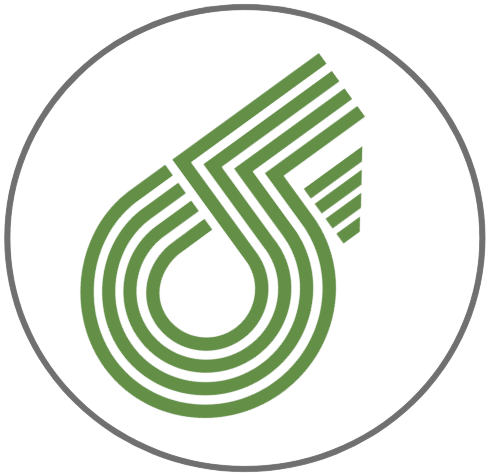STATISTICS ABOUT OPIOID USE
9.7 Million
People in 2019 aged 12 or older misused prescription pain relievers in the past year.
21 to 29 percent
Of patients prescribed opioids for chronic pain misuse them.
4 to 6 percent
of people who misuses prescription opioids transition to heroin.

5 FAST FACTS ABOUT OPIOIDS
1. Prescription opioid misuses carry a serious risk of addiction, abuse and overdose.
2. In 2017, over 47,600 Americans died of an opioid-related overdose. Prescription opioids accounted for 35% of these overdoses, or almost 17,000 total.
3. Everyday, more than 1,000 people are treated in emergency departments for misusing prescription opioids.
4. Opioid misuse can cause slowed breathing, which can cause too little oxygen to reach the brain, possibly resulting in coma, permanent brain damage or death.
5. In 2019, 1.6 million people aged 12 or older had an opioid use disorder.
ABOUT OPIOID ADDICTION
Anyone who takes prescription opioids can become addicted to them. Opioids block pain signals and release large amounts of dopamine, causing feelings of relaxation and intense euphoria, which can make the user want to keep taking the drug. Opioids also alter the brain’s natural reward system, making it difficult to stop using the drug.
Opioid addiction can begin by building a tolerance to the dose you’ve been prescribed, causing you to need a higher dose to get the same effect. Taking higher doses can then lead to dependency. When people become dependent on a drug, they need to take it in order to avoid withdrawal symptoms.
The most commonly misused prescription opioids include:
- Codeine – a medication prescribed for mild to moderate pain or to treat coughing.
- Hydrocodone – prescribed to treat severe chronic pain.
- Oxycodone – a prescription medication for moderate to severe pain.
- Morphine – prescribed for moderate to severe pain.
PRESCRIPTION OPIOID MISUSE
People misuse prescription opioids in a few different ways, including:
- Taking more medication than prescribed, for longer than prescribed
- Using prescribed medications in a different way than prescribed
- Visiting more than one doctor for prescriptions
- Taking someone else’s prescription medicine
PRESCRIPTION OPIOID OVERDOSE SYMPTOMS
- Slow, shallow breathing
- Extreme sleepiness
- Loss of consciousness
- Limp body
- Small “pinpoint” pupils
- Inability to talk
- Blue skin color and dark-colored lips
Snoring or gurgling sounds
SIGNS OF MISUSE
- Finishing a prescription early
- Mood swings
- Isolating
- Change in eating and sleeping habits
- Having trouble completing usual tasks at home, work or school
NEGATIVE SIDE EFFECTS
- Tolerance
- Physical dependence
- Drowsiness
- Confusion
- Itching and sweating
- Nausea
- Depression
- Constipation
- Sleepiness
- Dizziness
- Slowed breathing
WITHDRAWAL SYMPTOMS
- Drug cravings
- Anxiety/irritability
- Insomnia
- Abdominal pain
- Vomiting
- Diarrhea
- Tremors (shaking)
- Feeling cold
TREATMENT FOR OPIOID ADDICTION
With the right treatment, there is always hope for overcoming an addiction. If you are addicted to prescription opioids, there is help available. People who have opioid use disorder can be treated with medications and behavioral counseling. There are currently 1.27 million Americans receiving medication-assisted treatment for opioid addiction.
Prescription opioid detox
The first step of prescription opioid addiction treatment is detoxing or ridding your body of the drug. Detox should be medically supervised, and it should be done gradually. Do not try to stop taking the drug cold turkey, as this could worsen your withdrawal symptoms. As with every type of drug addiction treatment, detoxing is only the first step of recovery, and should be followed by a longer-term program.
Opioid addiction counseling
Behavioral counseling is strongly recommended for opioid addiction treatment. Opioid addiction counseling addresses many factors that influence substance abuse, such as coping skills, trauma, grief, anger management, communication skills, and relapse prevention. Counseling can be done on an inpatient or outpatient basis, and can be done alongside medication assisted treatment.
TREATMENT FOR OPIOID OVERDOSE
If you think someone is overdosing on opioids, call 911. Opioid overdose can be reversed using a medication called naloxone, available by injection or nasal spray. First responders and medical professionals can administer naloxone to rapidly reverse the overdose and possibly save the individual’s life. Naloxone can also be obtained at the pharmacy with a prescription, or over the counter in some states, allowing family members to keep the lifesaving drug on hand in case of an overdose.


